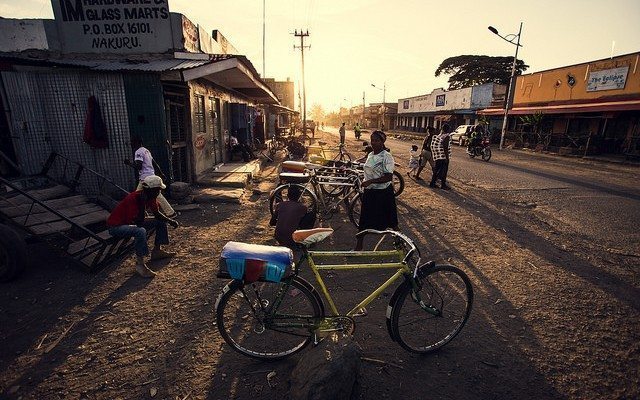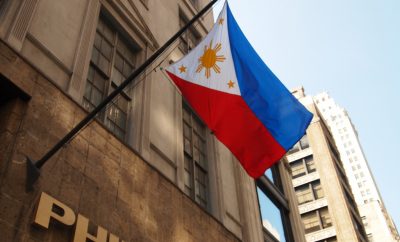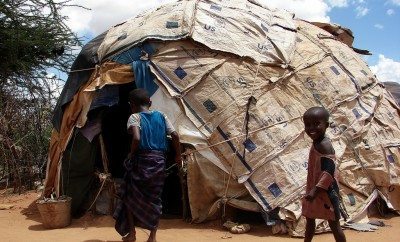
News
ICC’s Case Against Kenyan President Delayed
The International Criminal Court has been pursuing a case against Uhuru Kenyatta, the current President of Kenya since the violent events of the 2008 Presidential Elections. The ICC prosecutor recently called for a delay in the proceedings because of insufficient evidence to try Kenyatta.
This case does not resemble a dismissed case in an American court, though. The complicated history of the defendant, Kenyatta, and the International Criminal Court, both come into play in a tale that seems to get more complicated by the day.
During the 2007-2008 Kenyan elections, the incumbent, Mwai Kibaki was running against a challenger, Raila Odinga. Kibaki won, but Odinga supporters alleged that the Kibaki campaign rigged the elections. After the results were announced, violence broke out, mostly along ethnic lines that matched up with the ethnic groups from which Kibaki and Odinga came. It is estimated that 1,200 people were killed and about half a million displaced from their homes.
The Odinga side continued to accuse Kibaki and his supporters of election manipulation, but the Kibaki side accused the Odinga supporters of inciting ethnic violence.
Kenya attempted to conduct their own investigation, but it was unsuccessful and not fruitful. So in 2011, the ICC prosecutor, Luis Moreno Ocampo, took matters into his own hands. He indicted six people–Deputy Prime Minister Uhuru Kenyatta, Industrialisation Minister Henry Kosgey, Education Minister William Ruto, Cabinet Secretary Francis Muthaura, radio executive Joshua Arap Sang, and former police commissioner Mohammed Hussein Al for Crimes Against Humanity.
Kenya, of course, did not want to go along with the indictment of some of its top officials, and attempted to remove itself from the Rome Statute that allows the prosecutor to press charges. However, when that move was ultimately unsuccessful, those officials did show up in court for preliminary hearings and attempted to cooperate fully with the Hague-based ICC.
The case was further complicated by the election of Uhuru Kenyatta to the position of the Kenyan Presidency earlier this year. This week, his case took another turn when the current ICC prosecutor, Fatou Bensouda, asked for a three month delay from the set start date of February 5th, to look for more evidence. She claims that she had to drop two of her key witnesses because they were offering false testimony or refusal to testify, and now needs more time to follow up with others.
Whether or not she will be able to proceed when that three months elapses will depend on whether she is able to gather enough evidence. She claims that Kenya has not provided sufficient evidence, and stated, “it is necessary to exhaust this line of inquiry – hitherto blocked by the [government] – to determine whether the existing witness testimony regarding the accused’s alleged funding of the [electoral violence] can be corroborated by documentary evidence”.
The whole mess with the Kenyan election trials has led to another debate, this time about the ICC’s actions as a whole. Since the court was founded 11 years ago, there have been eight cases before the ICC. All eight have been from Africa.
African leaders are now arguing that the ICC is discriminatory. The African Union is claiming that justice does not appear to be applied fairly around the world, because the atrocities committed in Afghanistan, Syria, and Colombia have occurred without a word from the ICC.
However, it’s important to note that there are a few different ways cases can make it to the ICC. One of those is self-referral, and of the eight African cases, five came to the ICC in such a manner.
The ICC has always been a contentious topic–the Rome Statute that authorizes it hasn’t even been ratified by the US or Russia, for fear of potential future cases. The ICC has been a grand experiment in international justice; born out of the Nuremberg Trials and special courts set up for the crimes committed in Rwanda, Yugoslavia, and others. And so far, the ICC has had some successes and some failures. But if they can’t work around the Kenyatta issue, the ICC may end up a failed experiment.
—
Anneliese Mahoney (@AMahoney8672) is Lead Editor at Law Street and a Connecticut transplant to Washington D.C. She has a Bachelor’s degree in International Affairs from the George Washington University, and a passion for law, politics, and social issues. Contact Anneliese at amahoney@LawStreetMedia.com.
Featured image courtesy of [ViktorDobal via Flickr]








Comments